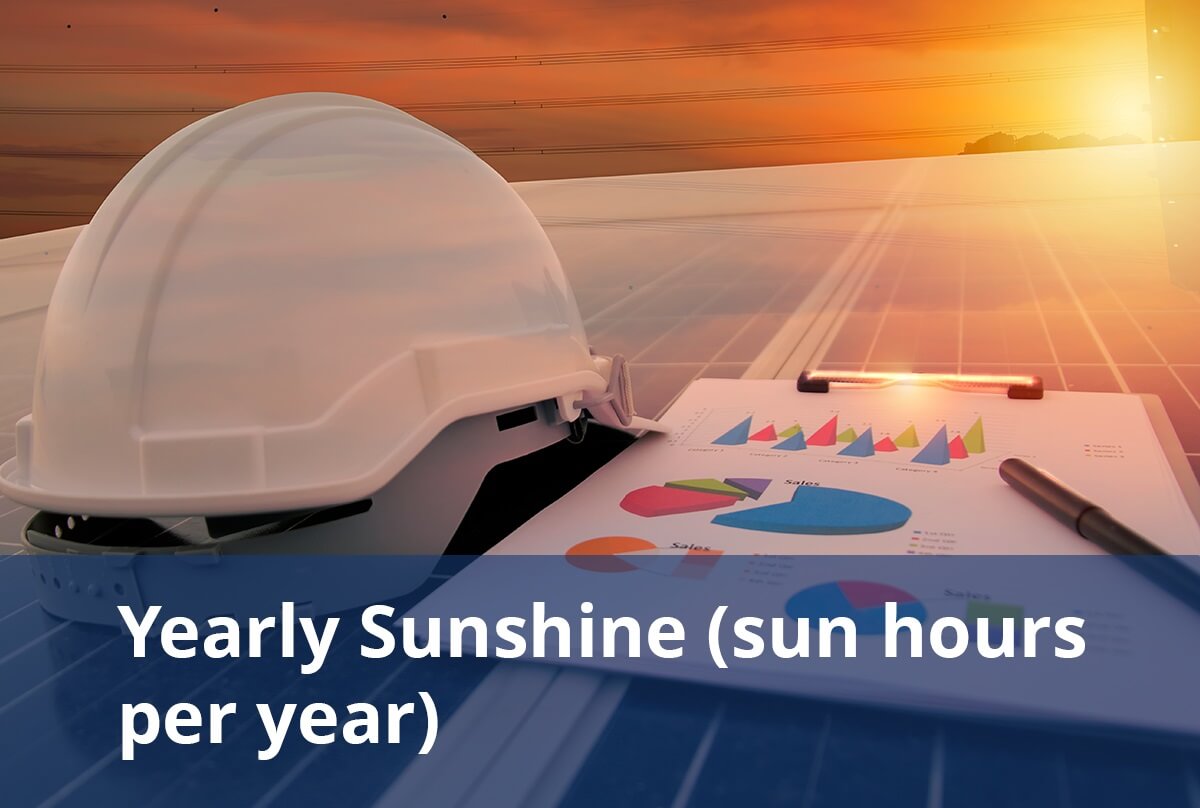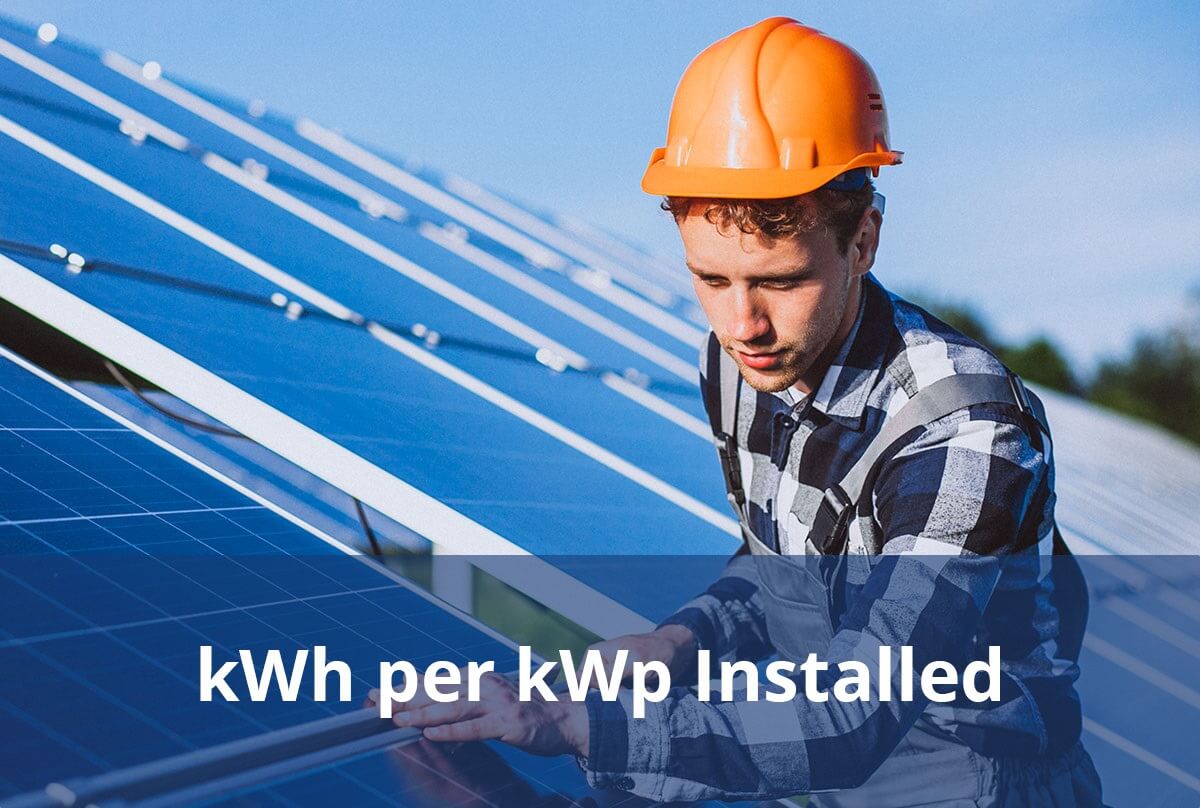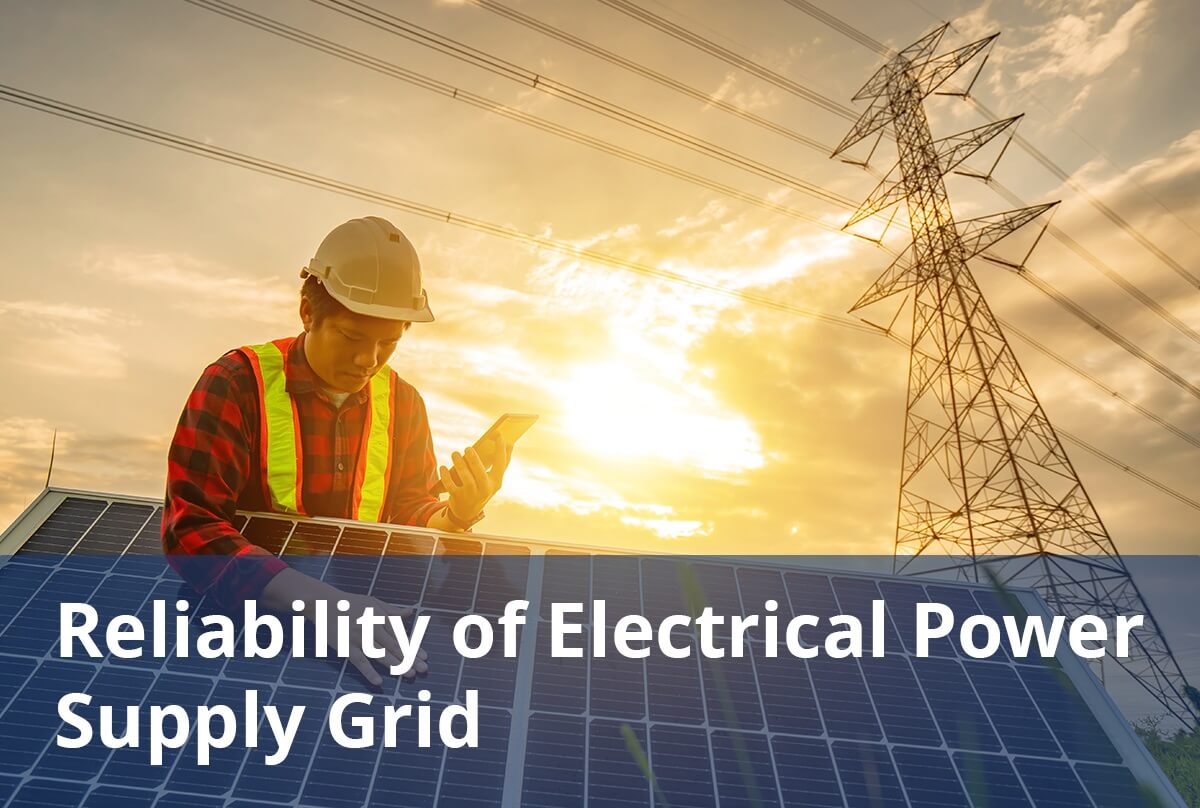Gain comprehensive insights into the statistics and metrics surrounding the solar production industry in Croatia

Sign Up Below to Access Our FREE Solar Module Production E-Course
Croatia Solar Report
Gain comprehensive insights into the statistics and metrics surrounding the solar production industry in Croatia
Key points
Yearly sunshine (sun hours per year)
Croatia receives an average of approximately 2,000 to 2,700 hours of sunshine annually, depending on the specific region:


kWh per kWp installed
The annual generation of installed photovoltaic (PV) capacity in Croatia is approximately 1.2 MWh per kWp.
Average cost per kWh from utility company
The electricity prices in Croatia are as follows:


Reliability of electrical power supply grid
The reliability of the electrical power supply grid in Croatia is generally high, with a low number of outages and voltage fluctuations. In a typical month, Croatian firms experience an average of 0.2 power outages.
Detailed Information
By the end of 2023, Croatia’s total installed solar panel production capacity was approximately 462.5 MW.
If the current trend in solar power plant development continues, Croatia could reach a solar capacity of 963 MW by 2025. It’s also forecasted that Croatia will have 1,340 MW of solar power by 2026, and possibly 7 GW of solar energy by 2030.
In June 2024, wholesale electricity prices in Croatia were $105.94 per megawatt-hour.
No specific cost data provided for separate electricity sources.
The Croatian government has set a reliability standard to ensure that electricity production and imports meet expected consumption needs. The rate of transmission and distribution power losses in Croatia is 9.10%.
As of 2023, there were 5,030 residential solar panel installations in Croatia.
Currently, there are over 10,000 solar power plants in operation. At the beginning of 2022, the number of installed solar panels in Croatia was below 4,000. Over the past two years, the annual average of new installations has been around 2,500 solar panels, adding approximately 240 megawatts of electricity production capacity each year.
As of 2023, there were 4,628 off grid residential solar panel installations in Croatia.
The demand is anticipated to increase in the coming years due to the streamlined process for issuing energy approvals to households and small businesses in the tourism, hospitality, and trade sectors.Top of FormBottom of Form
As of March 31, 2024, a total of 17,697 solar power plants were connected to the national power company’s (HEP) grid in Croatia, with 12,495 in households and 5,202 in businesses, totaling a capacity of 525.5 megawatts.
Interest in solar panel installations has steadily increased, with a notable surge during the 2022 energy crisis and further growth in 2023. Factors driving this rise include electricity price uncertainty and incentives for renewable energy use.
The current population of Croatia is 3,984,396.
Estimate for Factory Rent
The prices for industrial land typically range from 13 to 16 $/m2, depending on the location.
Industrial Electricity Rates
The average business electricity price is approximately 0.16 $/kWh as of December 2023.
Water Costs
The average cost of industrial water per cubic meter in Croatia varies by municipality, but generally, it is approximately $2.11 per cubic meter.
Salaries and Wages
Workers of solar industry in Croatia averagely earn between $1296 and $1,925 monthly, depending on the position.
Rent for Office Space
Average rent prices for commercial space in bigger cities (Zagreb, Split, Rijeka, etc.) typically range $18.33 per square meter.
Insurance
In 2024, the projected average expenditure per person in Croatia’s property insurance market is expected to be $178.30.
Electricity Generation
As of 2023, Croatia’s electricity generation capacity is approximately 4,000 MW, with a strong emphasis on renewable energy sources. In 2022, renewables accounted for 32% of total energy consumption, with hydropower being the primary contributor. The government’s updated Integrated National Energy and Climate Plan (NECP) aims to increase the share of renewables in final energy consumption to 42.5% by 2030, with specific targets of 73.6% for electricity generation and 47.1% for heating and cooling.
Transmission and Distribution
The electricity transmission system is managed by HOPS (Croatian Electricity Transmission System Operator). The country faces challenges with high transmission and distribution losses, which are around 9.1%, significantly above the EU average. The government is implementing measures to improve the efficiency of the grid and reduce losses, particularly in district heating and cooling systems.
Imports and Exports
Croatia is a net importer of energy, with approximately 54.54% of its total energy consumption sourced from imports. This includes 74.48% of natural gas and 78.34% of oil and petroleum products. The country also co-owns the Krško nuclear reactor in Slovenia, which contributes to its electricity supply through imports.
Energy Policy and Development
The Croatian government has adopted several strategic documents to guide its energy policy, including the Integrated National Energy and Climate Plan (NECP) for 2021-2030, which emphasizes energy efficiency, renewable energy, and decarbonization. The plan includes significant investments in grid modernization, aiming to increase renewable energy connections by 800 MW by 2026 and 2,500 MW by 2030. Additionally, the government is focusing on developing liquefied natural gas (LNG) infrastructure to enhance energy security and reduce reliance on fossil fuels.
Croatia has established several key regulations to support the growth of solar panel production and the broader renewable energy sector. Here are the main regulations:
Decree on Incentives for Electricity Generation from Renewable Sources
Adopted in June 2023, this decree simplifies administrative procedures for obtaining incentives for renewable energy production, including solar energy. It outlines the terms for market premiums and feed-in tariffs, mandating that public bidding for these incentives occurs at least once every three years. Investors must obtain the status of a privileged electricity producer within four years of entering into a contract with the energy market operator.
Integrated National Energy and Climate Plan (NECP)
The NECP, which outlines Croatia’s energy strategy until 2030, emphasizes increasing the share of renewable energy in the national energy mix. It sets ambitious targets for solar energy, aiming for an installed capacity of 2,500 MW by 2030. The plan also focuses on enhancing energy efficiency and reducing greenhouse gas emissions.
Energy Permits and Bidding Criteria
The government has established criteria for public bidding for energy permits, which are essential for the development of solar projects. This regulation aims to streamline the permitting process and ensure transparency in awarding permits for renewable energy projects, including solar installations.
Support for Innovative Technologies
The Croatian government is promoting the development of advanced technologies in the solar sector, including building-integrated photovoltaics (BIPV) and floating solar panels. These technologies are seen as crucial for maximizing the potential of solar energy in Croatia, which has significant solar irradiation levels.
Grid Connection Regulations
While specific rules and prices for grid connection are still pending, the Croatian government recognizes the importance of establishing a clear regulatory framework for integrating renewable energy sources into the national grid. This is essential for facilitating the growth of solar energy production and ensuring reliable energy supply.
The Croatian government has initiated several programs and investments to promote solar panel production and renewable energy development. Here are the key initiatives:
Rebate Program for Solar and Renewable Energy
In 2023, Croatia launched a rebate program with an allocation of 65.6 million aimed at businesses in the processing and heating sectors. This program supports the installation of 80 MW of renewable energy capacity, including solar photovoltaic (PV) arrays, biomass projects, and battery storage installations. Companies can apply for subsidies ranging from $109,087 to $2.18 million per project, with a maximum cap of $4.36 million for a single applicant. This initiative is funded through the European Union’s Modernization Fund, which aims to help member states upgrade their energy infrastructure to meet 2030 targets.
Investment in Energy Efficiency
In addition to the rebate program, the Croatian government plans to allocate $87.27 million for investments in energy efficiency and high-efficiency cogeneration in the processing industry. This funding is intended to enhance the overall energy efficiency of industrial operations, including those utilizing solar energy.
VAT Exemption for Solar Installations
To encourage households to invest in solar energy, the Croatian government introduced a 0% VAT rate for solar installations intended for self-consumption. This measure aims to reduce the financial burden on households and stimulate interest in adopting solar technology.
Simplification of Regulatory Framework
The government has adopted new regulations to simplify administrative procedures for obtaining incentives for renewable energy production. This includes provisions for public bidding for market premiums and feed-in tariffs, which are essential for promoting solar energy projects.
Hive Energy Projects
ERE Croatia Solar PV Park
386 MW Solar PV Power Project: Developed by Enlight Renewable Energy, this project is currently in the permitting stage and is expected to enter commercial operation in 2026.
RP Global Professio Solar PV Project
266 MW Solar PV Project: This project is being developed by RP Global Austria and Professio Energia, with an expected online date of 2027.
Korlat Solar PV Park
95 MW Solar PV Park: Owned by Hrvatska Elektroprivreda, this project is also in the announced stage and is projected to begin operations in 2026.
Bibinje Solar PV Park
60 MW Solar PV Project: Planned in Zadar, Croatia, this project is expected to be commissioned by 2026.
Solvis Rasinja Solar PV Park
50 MW Solar PV Project: This project is currently announced and is also expected to be commissioned by 2026.
Končar – Elektroindustrija
Enlight Renewable Energy
RP Global Austria
Solvis
Hive Energy
ON Hrvatska
Solaris Pons
Solar News Related to Croatia

Your First Step In Solar Production
In 2021, the global market size of solar power was valued at 167.83 billion USD, and it is projected to grow from 234.86 billion USD in 2022 to 373.84 billion USD by 2029, exhibiting a CAGR of 6.9% during the forecast period.

Premium Business Plan E-Course:
3 Weeks to a Perfect Solar Module Production Line
Low and High Budget Solar Panel Production Service

Turnkey Services:
We take care of all the planning and services needed for your turnkey solar module production line

Premium Support for Solar Panel Production Line
Solar Power Plant Service
We can help you start your own solar module production company. With our 100% turnkey service, we will deliver the needed machines, do a technology transfer, provide expert and excellent support, and help you with the know-how needed to start even if you don't have any previous experience in this industry.
Session expired
Please log in again. The login page will open in a new tab. After logging in you can close it and return to this page.